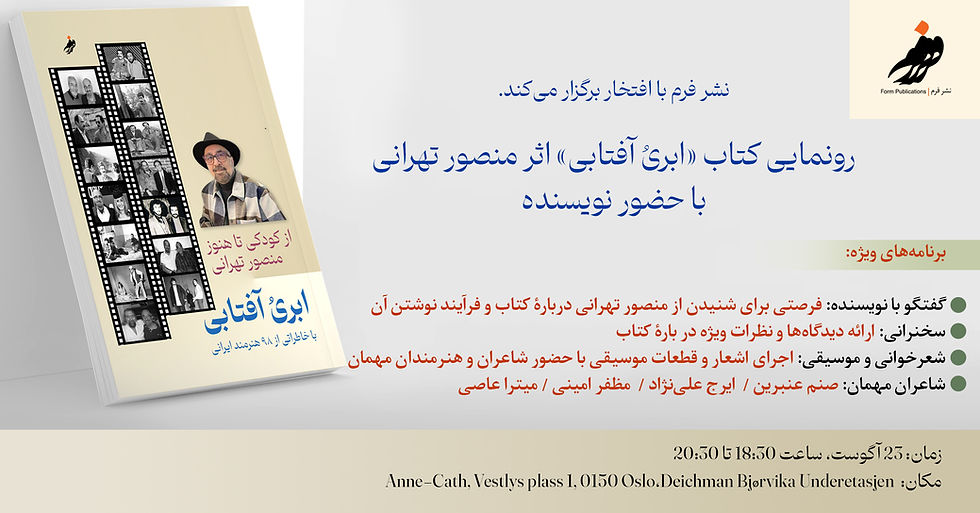The participation of Form Publishing in the global campaign #AgainstBookBurners
- Formbook

- Nov 25, 2024
- 4 min read
Updated: Nov 27, 2024
The Fear of Dictators Towards Public Awareness and Their Attempt to Destroy Books
Throughout history, knowledge has always been a liberating and transformative force. It brings freedom and intellectual independence to societies, freeing people from the chains of ignorance and tyranny. Awareness empowers individuals to transition from being mere victims of injustice to active agents of resistance against oppression. Conversely, dictators, whose power is built on suppression and control, fear public awareness more than anything. Books, as the primary tools for transferring knowledge and ideas, have long been targeted by oppressive regimes.
Book Burning: An Attack on Human Memory and Identity
Books are not just words on paper. They embody a nation’s identity, collective memory, and cultural spirit. When a regime destroys books, it aims to erase that memory and identity. By destroying books and limiting access to educational resources, the Taliban are trying to deprive Afghanistan's future generations of independent thinking and awareness. They understand that knowledge is the antithesis of ignorance and a potent tool for holding power accountable.
Books: Symbols of Awareness and Threats to Dictators
Books go beyond being mere collections of words and pages. They are vessels of ideas, narratives, and human experiences that bridge generations, cultures, and perspectives. This is precisely why books have always posed a significant threat to dictators. They present alternative ideas capable of questioning the legitimacy of authoritarian regimes. Books create spaces for critical thinking, intellectual awakening, and solidarity among individuals—three elements that threaten the survival of any dictatorship.
For instance, during the Nazi regime in Germany, public book burnings were not just an attack on the works of political and cultural opponents but also an attempt to erase a nation’s collective memory and eliminate any ideas conflicting with Nazi ideology. Similar actions are being carried out today by the Taliban in Afghanistan through the destruction of books, closure of educational institutions, and suppression of publishing.
Why Do Dictators Destroy Books?
The effort to destroy books and restrict access to them has clear motivations, all tied to controlling public opinion and preventing dissent:
Ideological Control: Dictators require a single narrative of truth to dominate society—the official narrative of the regime. Books that present alternative, critical, or opposing perspectives pose a serious threat to this narrative. Destroying such books helps dictators avoid intellectual challenges to their ideology.
Preventing Intellectual Unity: Books serve as platforms for exchanging ideas and fostering solidarity among people. Through books, various groups within society can connect over shared concerns and unite against injustice. This unity poses a great danger to dictators.
Rewriting History: A critical tactic for dictators to maintain their power is to rewrite history and control society’s collective memory. Historical books that recount real events hinder this manipulation. Destroying or censoring such books allows dictators to rewrite the past in ways that serve their interests.
Historical Examples of Book Burning
History is filled with examples of how dictators have destroyed books to preserve their power:
Nazi Germany: During Adolf Hitler’s regime, large-scale book burnings were conducted. Works by Jewish authors or those opposing Nazi ideology were publicly burned. The goal was to eliminate any thought or idea that could challenge nationalist extremism or Nazi beliefs.
Ancient China: During the reign of Qin Shi Huang, the first emperor of China, all books that did not align with the government’s official ideology were ordered to be destroyed. This effort sought to enforce absolute loyalty to the central government.
The Taliban in Afghanistan:
Both during their first regime and today, the Taliban have enacted strict laws and severe limitations to destroy books and materials that conflict with their extremist interpretation of Islam. Their efforts to obliterate books, close cultural centers, and restrict the publication of scientific and literary works are part of their broader agenda to suppress public awareness.
Modern-Day North Korea: In the dictatorship of North Korea, access to books and foreign resources is strictly prohibited. The country maintains total control over information and imposes severe censorship to prevent its people from gaining awareness about the outside world.
Resistance Against the Destruction of Knowledge
Despite the efforts of dictators to destroy books, history has shown that awareness is indestructible. People and intellectuals have always resisted such oppression. In many cases, books have been preserved or distributed clandestinely.
For instance, during oppressive regimes, many authors and intellectuals circulated their works underground to ensure their ideas reached the people. In Afghanistan, too, despite the Taliban’s restrictions, writers, publishers, and intellectuals strive to keep knowledge and awareness alive. Utilizing digital technology, secretly publishing works, and passing ideas to future generations are some forms of resistance.
The participation of Form Publishing in the global campaign #AgainstBookBurners demonstrates a global commitment to defending knowledge and culture. This campaign aims to raise public awareness and exert international pressure on oppressive governments, symbolizing unity against suppression.
Conclusion
Dictators’ fear of public awareness underscores the unparalleled power of knowledge and ideas. Destroying books, while it may achieve temporary suppression, can never permanently suppress truth and freedom. Books symbolize hope, freedom, and human progress, and history has proven that ideas cannot be silenced forever.
The Taliban’s actions in destroying books threaten not only Afghanistan’s history but also humanity’s collective memory. However, as history has shown, knowledge always finds a way to survive, and ultimately, oppression is defeated.
With every book saved, a spark of hope remains alive. Campaigns like #AgainstBookBurners not only resist the destruction of knowledge but also demonstrate that the world remains united in defending the freedom of thought and culture.












Comments